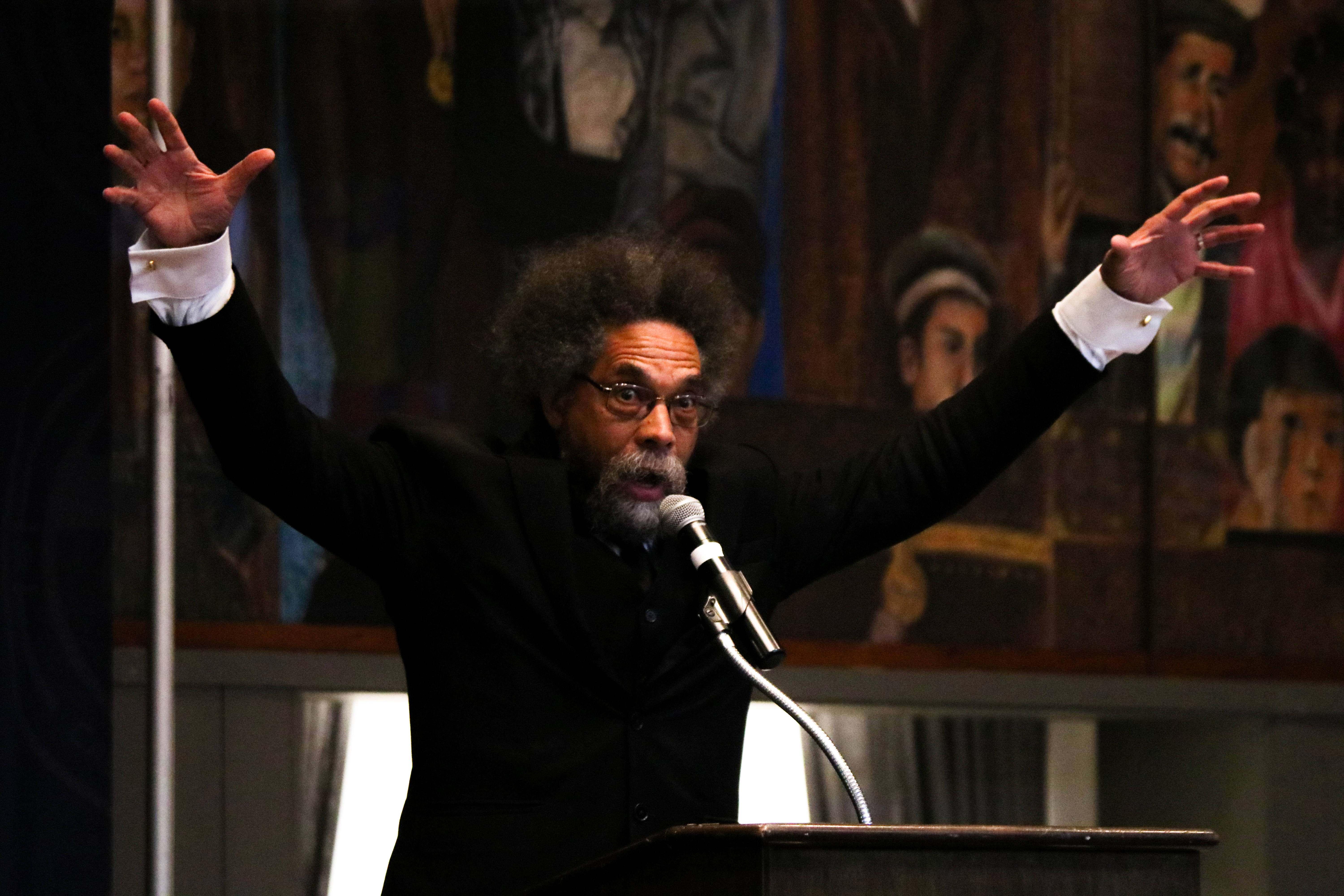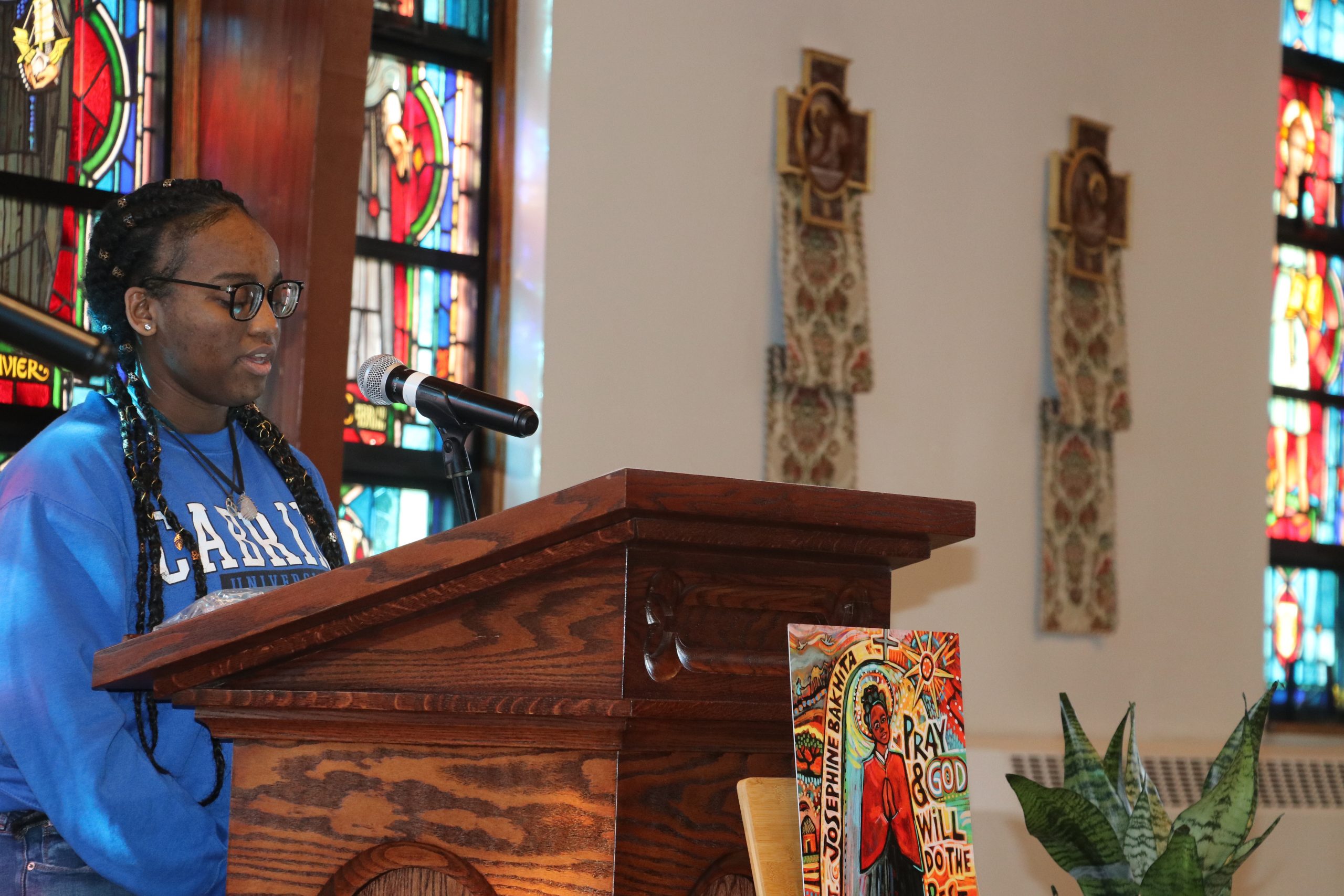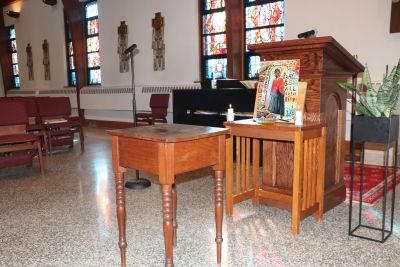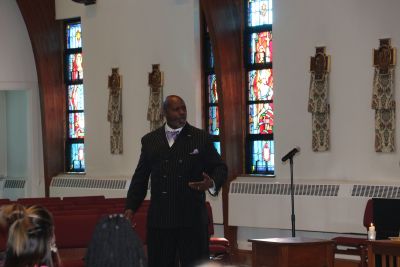Elizabeth Wellington joined Cabrini University’s Loquitur Media staff to share her thoughts on an essay that she wrote for The Philadelphia Inquirer: “Choosing Blackness.” Co-editors Anna Schmader and T.J. Scott host the Loquitur’s first podcast. This is a shortened version of the original audio production.
Wellington’s stories include but are not limited to gender, race, wellness, fashion, style and pop culture. The articles that she has the most passion for relate to black identity.
“The pain of being black wasn’t always in my face, but when it was, it helped me as a writer,” Wellington said.
Whether she writes about her family’s identity, segregation laws in Philadelphia that impact the city today or about systemic racism, she advocates from a personal perspective.
It wasn’t until Wellington grew up before she realized the struggles black people were going through. This would later inspire her to exemplify the concept of blackness. “We all as black people should realize we all play a larger role in American history,” Wellington said.
Dr. Cornel West visits Cabrini, tells students “be original”

When fans approach historian, educator, author and political activist, Dr. Cornel West, he makes one point very clear when they praise his “brand.”
“People come to me and say they love my brand, I don’t got no brand! A brand is something you market and strategize to sell; I have a cause, something I’m willing to live and die for!”
These words are just a small percentage of the wisdom from West that electrified the audience, as he was the keynote speaker at the Shirley Dixon Urban Education Symposium. The scale of this visit was hard to miss, from the number of individuals dressed in formal attire to the increased presence of police escorts hired for the big guest. Read More.
“Don’t think a degree is going to make you a better ‘love warrior,’ you’re going to have to make some tough choices. What’s important for young people is to be original; it’s OK to be inspired, but you can’t live your life copying what you think is going to get you the most attention.” – Cornel West
Here is what white people can do to amplify black history month
By Christopher May
“I am personally going into the field of teaching, to be able to bring awareness to my students, presenting a bio for a historical black figure, for each school day,” Hunter Cooper, sophomore education major, said. Cooper, 19, plans to use his platform in educational teaching to bring awareness for the young students coming up to learn about the true history of African Americans. He teaches grades pre-k – 3rd grade, and the reasoning behind showing them important historical figures that paved the way for African American history was to bring awareness to them at a young age. “I think it’s important to teach them at a young age and show them the right way to treat others with respect, and equally through all ethnicities and cultures,” Cooper said.
Why embracing Black History Month requires looking ‘beyond the textbooks.’
By Toniann Gooden
Black History Month is an opportunity to understand and become educated on Black issues that have been hidden in the nation’s fabric. However, Black History Month is also a symbolic spotlight of celebrating Black and African American culture. Black appreciation is light turned on all year, but it is put in the spotlight for all to see during Feb. It is a month to go beyond surface-level discussions on slavery, the Civil Rights Movement or explicit racism. It’s time to highlight Black leaders, accomplishments and culture.
Black History Special Section
For full coverage, go to Cabrini’s student media: The Loquitur
Cabrini celebrates its historical connection to the Underground Railroad
Christopher Schaller, Sydnee Reddy, Toniann Gooden


Motioning to a small, wooden table that typically wouldn’t get much attention, Armani Parker spoke passionately about its significance.
“This isn’t just a table; this is apart of our ancestry,” said Parker, president of the Black Student Union, said.
The table came from Vachel Catlin, who traveled through the Underground Railroad with just one piece of furniture. Now, 200 years later, that same table resides at Cabrini. On Tuesday, Feb. 8, an event was held at the Bruckmann Chapel that celebrated the inauguration of Catlin’s table at the university. As part of Cabrini’s Black History Month, campus leaders held the event to honor the Underground Railroad by telling the story behind the valuable piece of furniture that was donated to the university by the Catlin family.
While the table was the focal point of the event, there was a layout of guest speakers. Dr. Lailah Dunbar-Keeys, director of the office of the DEI and Belonging, gave the introduction and the libation. The ritual was derived from Africa, and Dunbar-Keeys emphasized that the first trace of humanity is traced to central Africa.
After escaping to the north, the Catlin family settled in Western Pennsylvania. Vachel’s son, George opened up a barbershop there. During the daily operations of the shop, the table was always sitting in the window overlooking the town of West Newtown, Pennsylvania.
George retired after more than 70 years as a barber and left his family table to a longtime friend and customer, John Sarnosky, who maintained it in his home until his death in 1980. At the time, his grandson, John Bachkay, who was studying to be a priest at Saint Vincent Seminary in Latrobe, Pennsylvania, was given the table. In 1983, Fr. John was ordained as a priest for the Pittsburgh Diocese. He took the table with him to all of his church duties. He gave the Catlin family table to Cabrini University after his retirement in 2021.
The Rev. David Driesch, university chaplain, gave his remarks on the importance of the table being donated to the university. “After many years of traveling this table has now found its home and we are honored to possess something with as much historical significance as this table,” Driesch said.
Perry Brisbon, vocal instructor and choir director, sang two breathtaking spirituals, “A City Called Heaven” and “Witness.” Negro spirituals were a form of American folksong sung by Black Americans (mostly among enslaved blacks) dating to the early 1600s to late 1800s.

Vocal Director and Choir Director, Perry Brisbon performing a musical piece. (Photo by Sydnee Reddy)
Spirituals combines African cultural legacy with the experiences of slavery and community of people in bondage initially during the transatlantic slave trade—the greatest and most horrific forced migrations in recorded human history. Music was vital to people’s lives in Africa, with music making pervading significant life events and daily routines. The white colonists of North America, on the other hand, were worried and disapproved of the slaves’ African-infused form of worship, which they regarded idolatrous and barbaric. As a result, the gatherings were frequently prohibited and had to be held in secret.
“Spirituals were and are an important aspect of uplifting black Americans and expressing the struggles and aspirations we were going through via singing,” Brisbon said.
African Libation is a ritual pouring of water. The significance is that of a West African tradition that has passed through the enslaved Africans on their travels to America. It is the meaning of everlasting and continuous life. Dunbar-Keeys welcomed everyone to participate in the ritual by saying “Ashe” after pouring water over a plant while saying the names of the ancestors. Ase or ashe (from Yoruba å) is a Yoruba philosophical notion that describes the power of the Yoruba of Nigeria to make things happen and for them to prosper.
There are many Ashe meanings. It makes each and every one of us, gives us our movement, gives us our breath, grants our speech and could mean Amen.
“It pays respect to our ancestors as we pay respect to those ancestors who have touched this table, such as, St. Josephine Bakhita and all of the people, who cause of their lives we are here because of them,” Dunbar-Keeys said.
Dunbar-Keeys highlighted that it is important to acknowledge God and our ancestors before doing this ceremony, and to give them the only thing they want, to be remembered.
“The big key takeaway is the impact our ancestors had on the society we live in today,” Parker said.
Parker presented the students with a historical perspective on the table. It reminds us of what black people had to go through to obtain even the tiniest of belongings in their quest for freedom.
Starting at Cabrini, a new tradition will be established in which the tiny wooden table will remain in the chapel before being transported throughout the many offices at Cabrini, as it has done throughout history. The significance of the table will allow Cabrini to have a strong sense of community.
A few other stories in this edition:
- Supporting Black-owned businesses by Erica Zebrowski
- How ‘outdated’ schools need to change with the workplace by Pryce Jamison and Anna Schmader.
- Brotherly Love No More: Cierra Southard
- Award shows are still suppressing Black artists and actors by Isaiah Dickson
- Why embracing Black History Month requires looking ‘beyond the textbooks.’ By Toniann Gooden
- Former Dolphins coach Brian Flores sues the NFL for racial discrimination By John Rader
- A Black Student-Athlete’s Cabrini Experience by Troy Scott
[photoblocks id=10]
